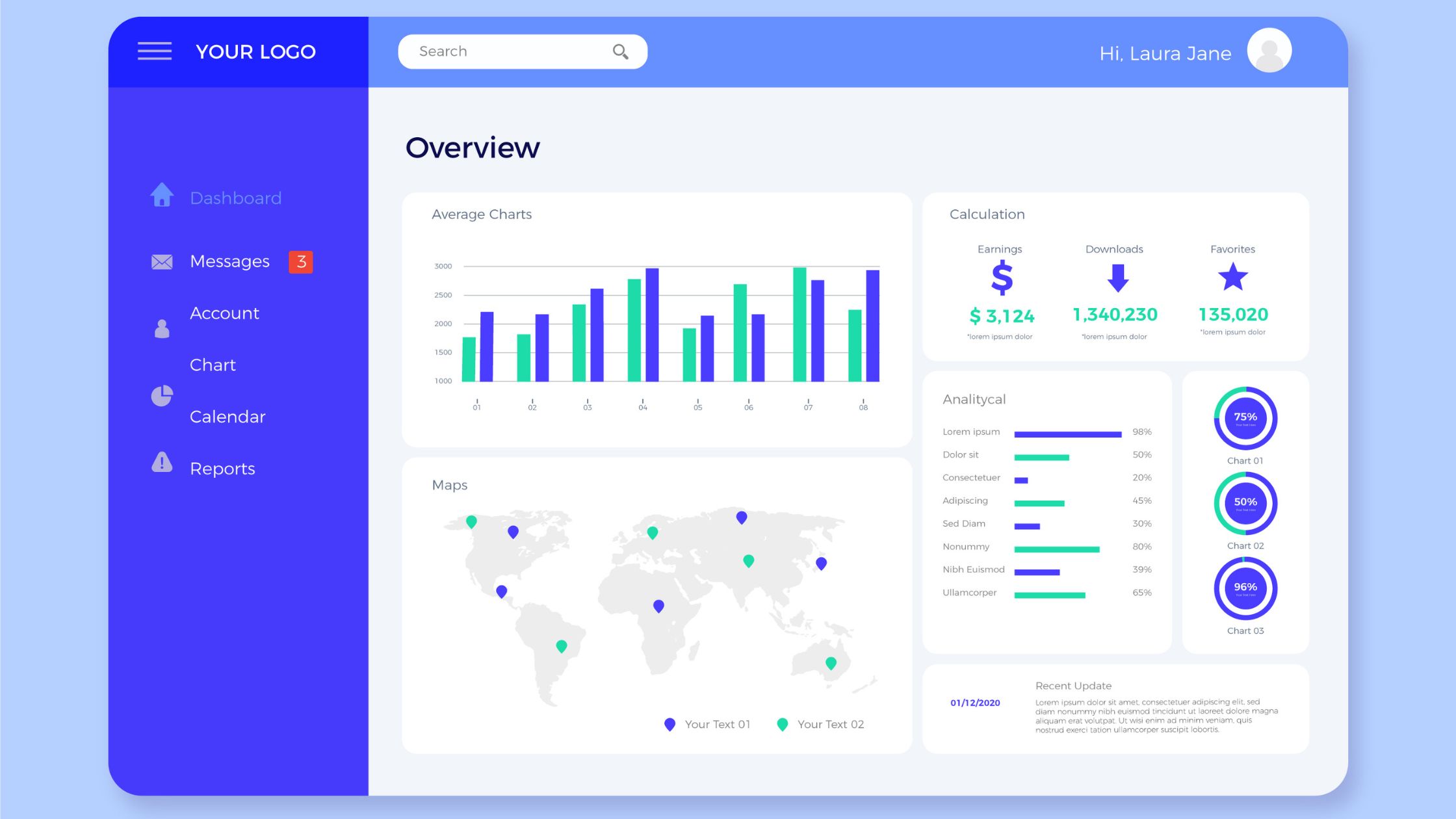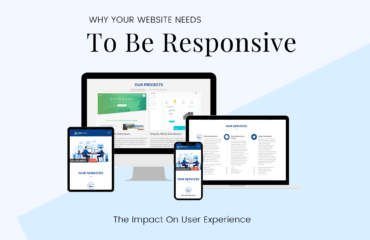
A website is the digital storefront of your company, serving as the primary point of interaction between you and your potential customers. In today’s highly digitalized world, having a well-designed business website is no longer a luxury but a necessity for businesses to thrive and grow.
This online platform not only showcases your products or services but also represents your brand identity and values.
In this article, we will explore the various reasons why a good website is crucial for business growth:
- Establishing a strong online presence
- Driving traffic and conversions
- Enhancing customer experience and trust
We will also provide practical tips on how to leverage your website effectively to achieve these goals.
So let’s dive in and discover the power of a well-crafted business website in driving growth and success in the digital age.
Building An Impressive Online Presence

A strong online presence is vital for businesses in today’s digital world, and a well-designed website plays a crucial role in establishing and maintaining it. Here are the key elements of an impressive website design:
- Visual Appeal – Engaging imagery and intuitive layout that reflects the brand’s identity.
- User-Friendliness – Easy navigation, clear information architecture, and seamless user experience.
- Mobile Responsiveness – Ensuring the website functions effectively across various devices, catering to the growing mobile user base.
Branding through the website contributes to long-term business success by creating a memorable and consistent brand image. It allows businesses to convey their values, mission, and unique selling points to the audience. A cohesive brand presence fosters trust and recognition, ultimately differentiating the business from competitors.
Driving Traffic And Conversions
To grow your business, it’s not enough to simply have a well-designed website. You also need to drive traffic to your site and convert those visitors into customers. Here are some key points to consider:
1. Optimizing For Search Engines
Search engine optimization (SEO) is crucial for attracting organic traffic to your website. By optimizing your website’s content, meta tags, and keyword usage, you can improve your search engine rankings and increase visibility.
2. On-Page Optimization
On-page optimization involves various strategies to make your website more search engine-friendly. This includes conducting keyword research to target relevant terms, optimizing meta tags such as title and description tags, and ensuring high-quality content that provides value to visitors.
3. Lead Generation
Your business website plays a vital role in generating leads. By incorporating clear call-to-action buttons and lead capture forms on strategic pages of your site, you can encourage visitors to take the desired action, such as signing up for a newsletter or requesting a quote.
By implementing these strategies, you can drive targeted traffic to your website and increase the chances of converting visitors into paying customers. Remember that driving traffic and conversions is an ongoing process that requires continuous monitoring, testing, and optimization.
Enhancing Customer Experience And Trust
A good business website goes beyond driving traffic and conversions. It also plays a crucial role in enhancing customer experience and building trust. Here are some key points to consider:
1. Round-The-Clock Customer Support
A website serves as a 24/7 customer support platform, providing valuable information and resolving queries in a timely manner. Customers can easily access FAQs, product details, and contact information, reducing the need for direct customer support.
2. Elements Of Trustworthiness
A business website should convey trustworthiness to potential customers. This can be achieved through elements such as testimonials from satisfied customers, certifications or awards received, and secure payment gateways that ensure safe transactions.
3. Mobile Responsiveness
With the increasing use of smartphones, it is crucial for a website to be mobile responsive. This ensures a seamless browsing experience for mobile users, allowing them to easily navigate the site and access the information they need.
By providing excellent customer support, showcasing trustworthiness, and ensuring mobile responsiveness, a business website can enhance the overall customer experience and build trust with potential customers. This leads to increased credibility for the brand and ultimately drives business growth.
Different Types Of Business Websites
When it comes to business websites, one size does not fit all. Different industries and goals require different types of websites. Here are three common types of business websites and their purposes:
- E-commerce websites are essential for online retail businesses. These websites focus on showcasing products and providing a smooth checkout process. They include features such as product catalogs, shopping carts, and secure payment gateways. E-commerce websites allow businesses to reach a global customer base and facilitate online transactions.
- Portfolio websites are ideal for creative professionals who want to showcase their work and attract clients. These websites highlight the individual’s skills, expertise, and past projects through visual portfolios, testimonials, and client feedback. Portfolio websites often have a clean and visually appealing design to highlight the professional’s talent effectively.
- Blogging websites are perfect for content creators who want to share valuable insights and engage with their audience. These websites focus on delivering informative and engaging content through articles, videos, or podcasts. Blogging websites often include features such as comment sections, social media sharing buttons, and subscription options to build a loyal readership.
Each type of business website serves a specific purpose based on the industry and goals. By understanding the different types available, businesses can choose the one that aligns best with their objectives and target audience.
Key Considerations In Building Your Business Website
When it comes to building your business website, it’s essential to consider several key factors to ensure its effectiveness in reaching your target audience and achieving your business goals. Here are some practical tips for businesses embarking on the website development process:
1. Defining Clear Objectives And Target Audience
Before diving into the development phase, clearly outline the objectives you aim to achieve with your website. Understand your target audience’s needs, preferences, and behaviors to tailor the website content and design accordingly.
2. Choosing The Right CMS Platform Or Web Developer
Depending on your budget and technical expertise, decide whether you’ll leverage a content management system (CMS) like WordPress or hire a professional web developer. The choice should align with your long-term maintenance and scalability needs.
3. Ensuring Seamless Navigation And Fast Page Loading Speed
User experience is paramount. Regular maintenance and optimization are crucial for ensuring intuitive navigation and fast page loading speed, which directly impact visitor engagement and conversion rates.
By keeping these considerations in mind, you can lay a solid foundation for developing an effective business website that resonates with your audience and supports your growth objectives.
The Future Of Business Websites In A Digital World
As technology continues to evolve, so do the trends and functionalities associated with business websites. It is crucial for businesses to stay ahead of the competition by embracing emerging trends in website design and functionality. Here are some key points to consider:
1. Voice Search Optimization
With the increasing popularity of voice-enabled devices, businesses should optimize their websites for voice search to enhance user experience and accessibility.
2. Chatbot Integration
Integrating chatbots into websites can improve customer engagement and provide instant support, contributing to a seamless browsing experience.
Despite the rise of social media platforms, the importance of business websites remains paramount. Websites serve as centralized hubs for online presence, allowing businesses to maintain full control over their branding and content.
It is essential for readers to take action now and invest in building a robust website strategy for long-term business growth.
Conclusion
A good website is a non-negotiable asset for businesses in driving growth and staying competitive in the digital era. It serves as the central hub for your online presence, essential for attracting and engaging customers.
Establishing a strong online presence through an impressive website design is crucial for enhancing credibility, showcasing your brand, and creating a seamless experience for visitors.
The role of a business website in driving traffic, facilitating lead generation, and optimizing customer experience cannot be overstated. It acts as a 24/7 platform for customer support, information exchange, and trust building.
As businesses continue to evolve in the Digital World, investing in a robust website strategy remains imperative. Embracing emerging trends and technologies will enable you to stay ahead of the competition and meet the evolving needs of your target audience.
Recognizing the significance of a good website and leveraging it effectively will not only contribute to business growth but also pave the way for sustained success in an ever-changing digital landscape.


